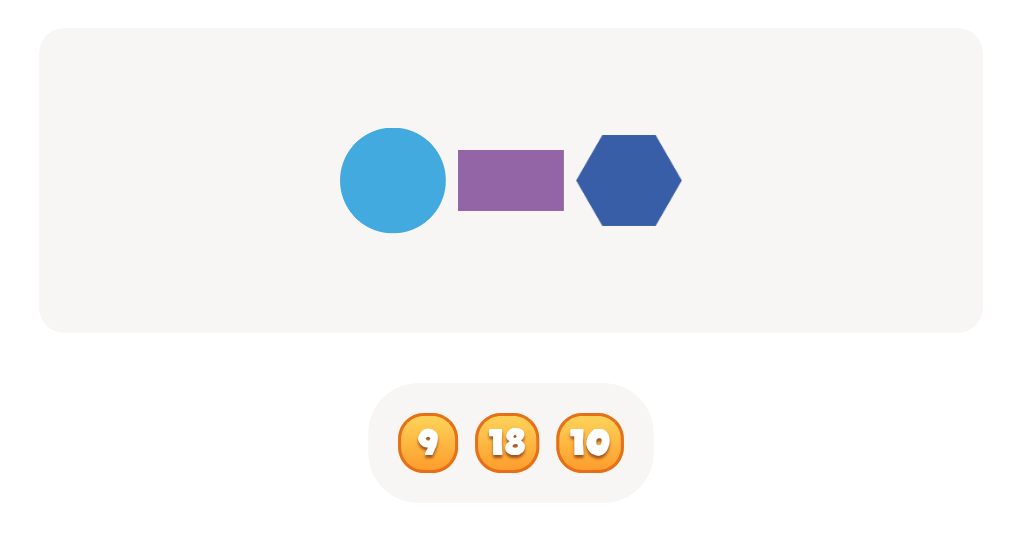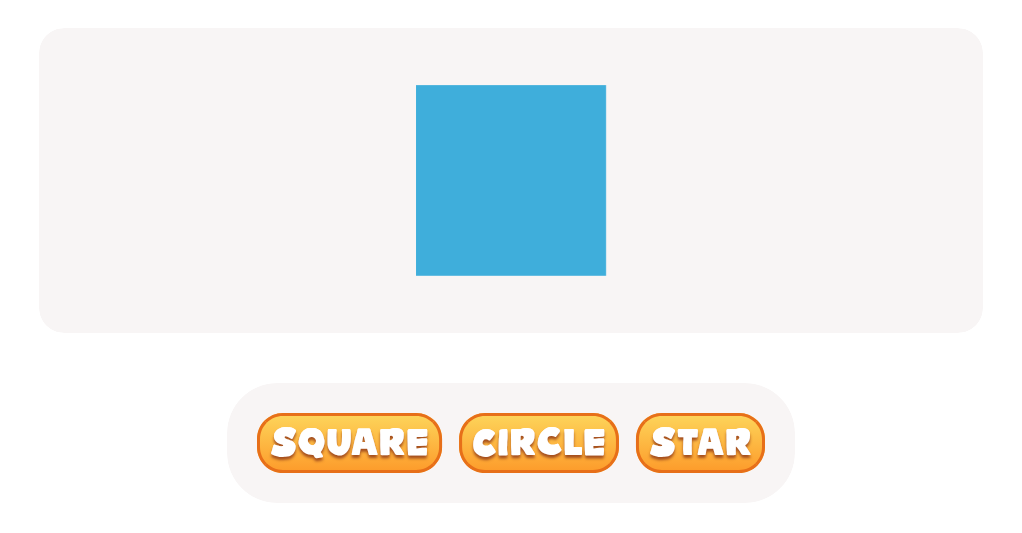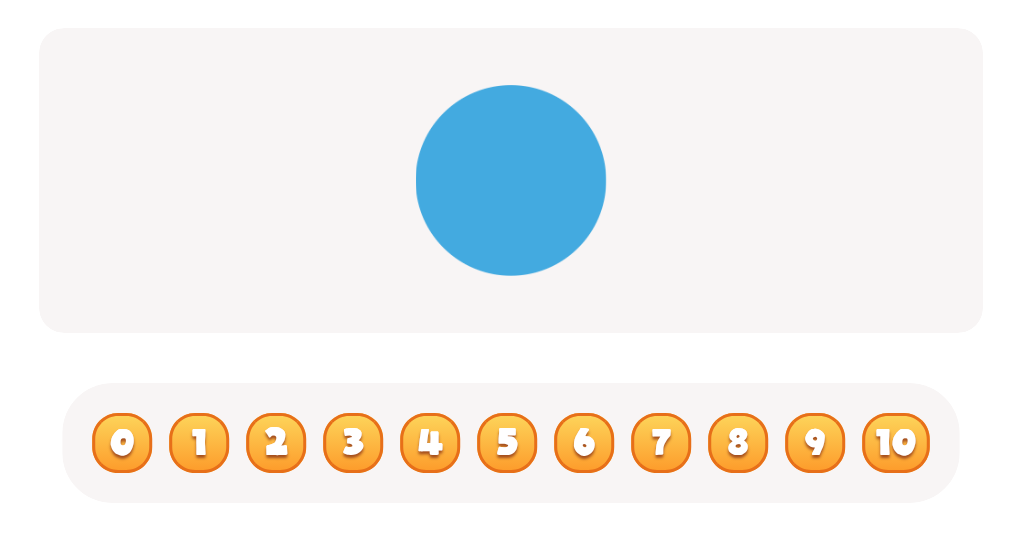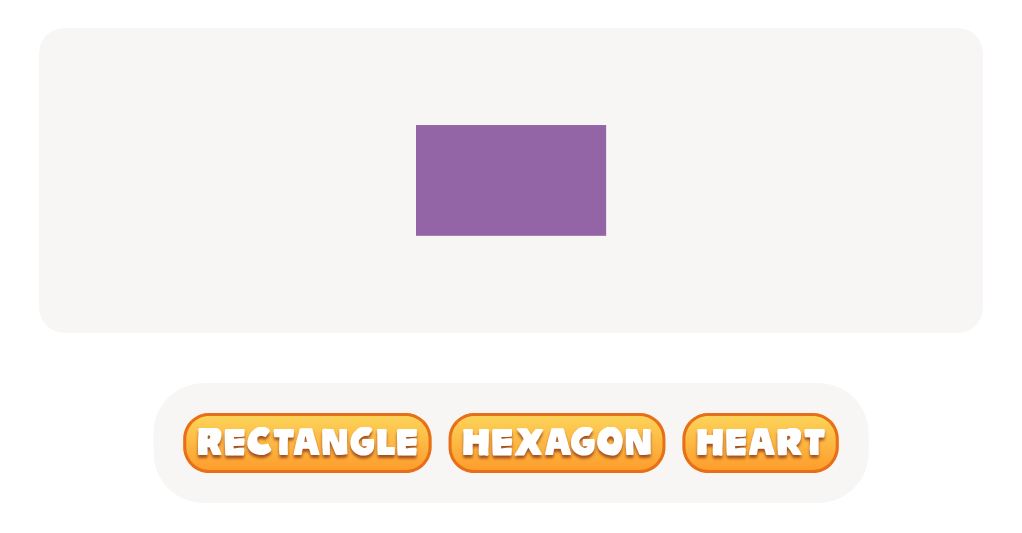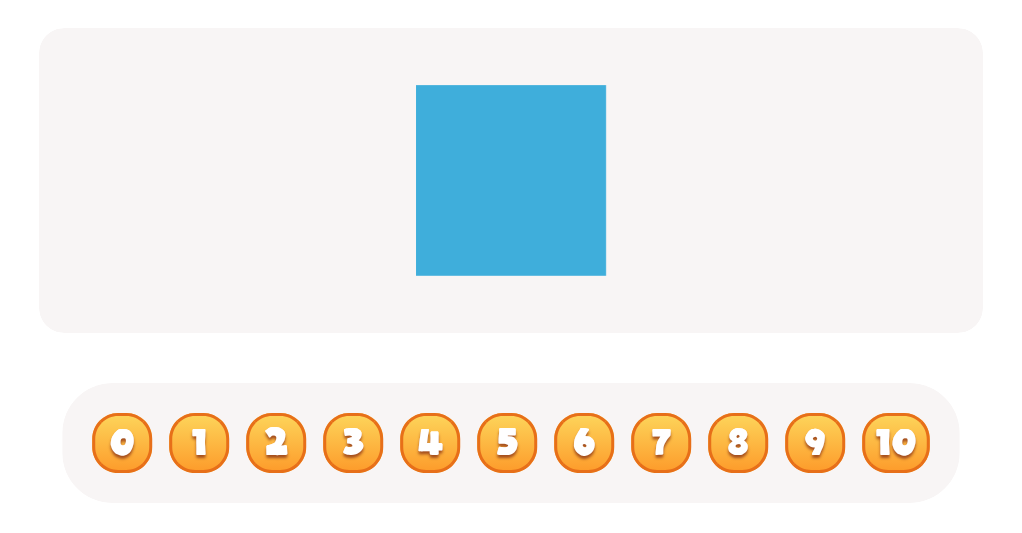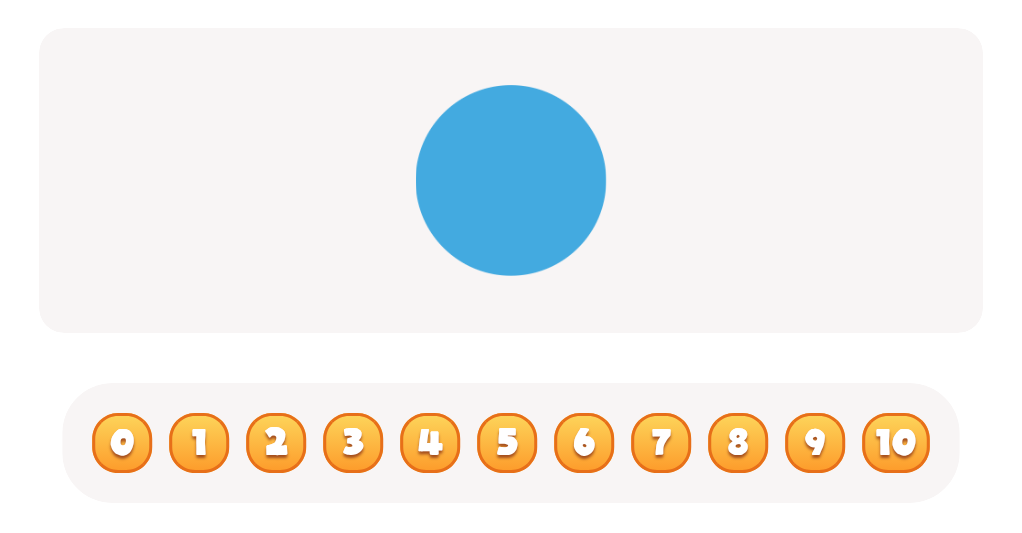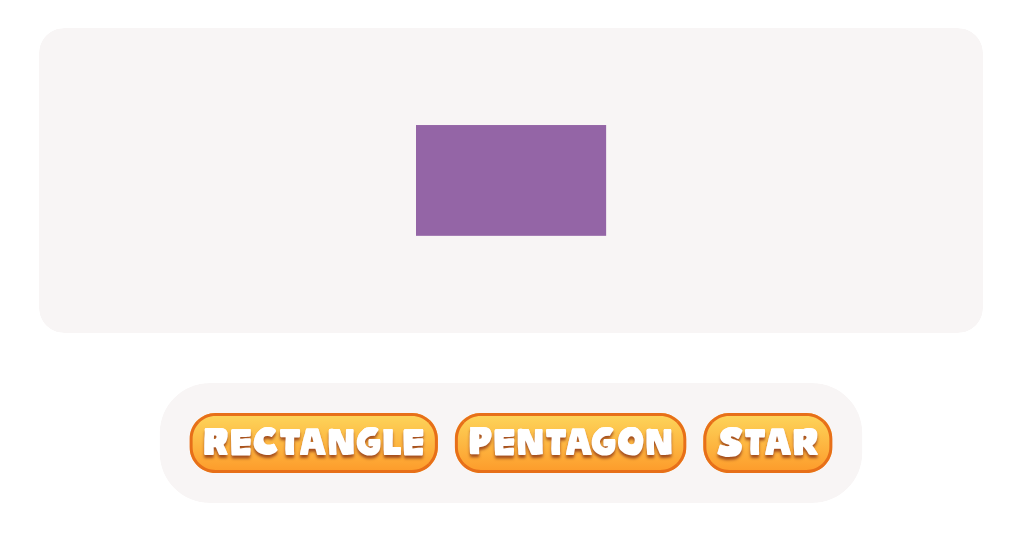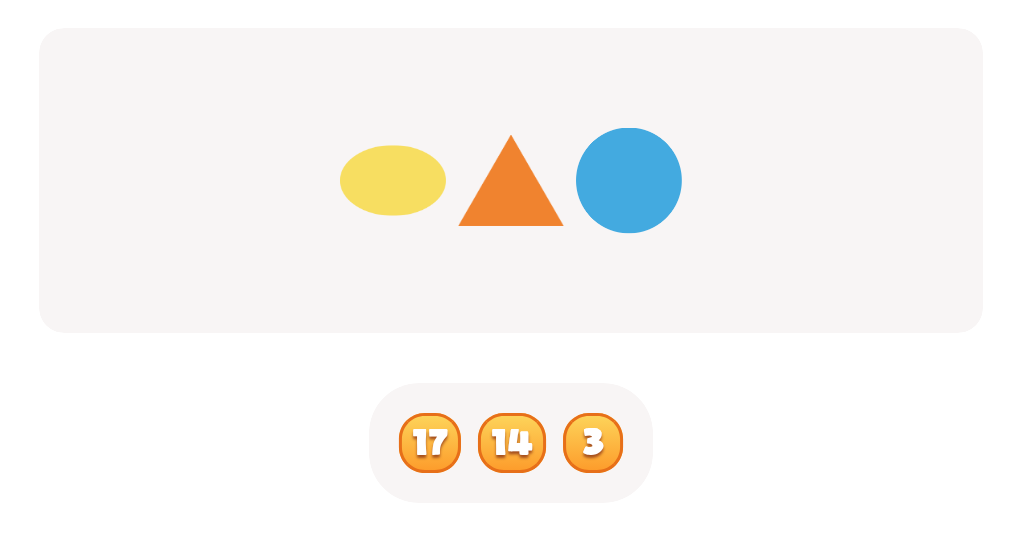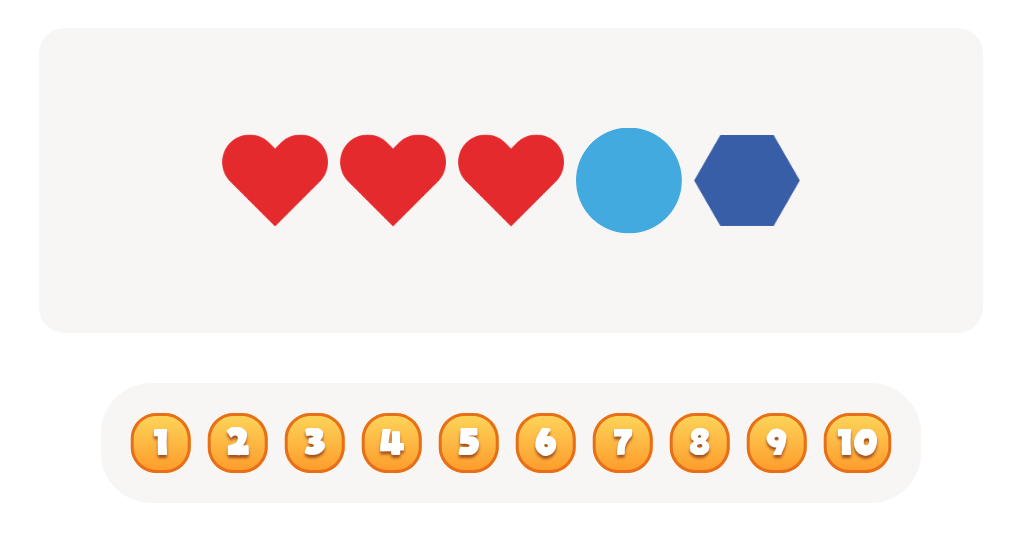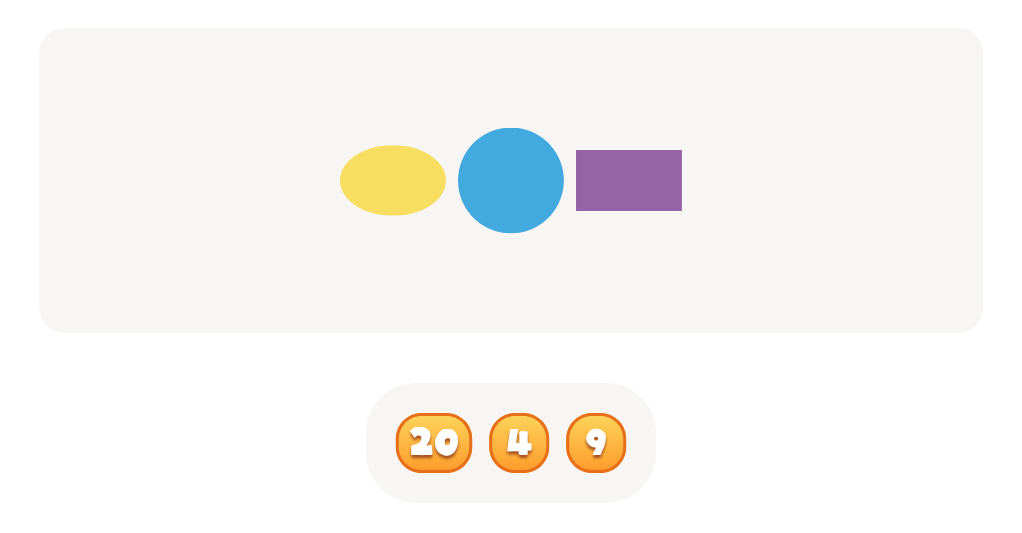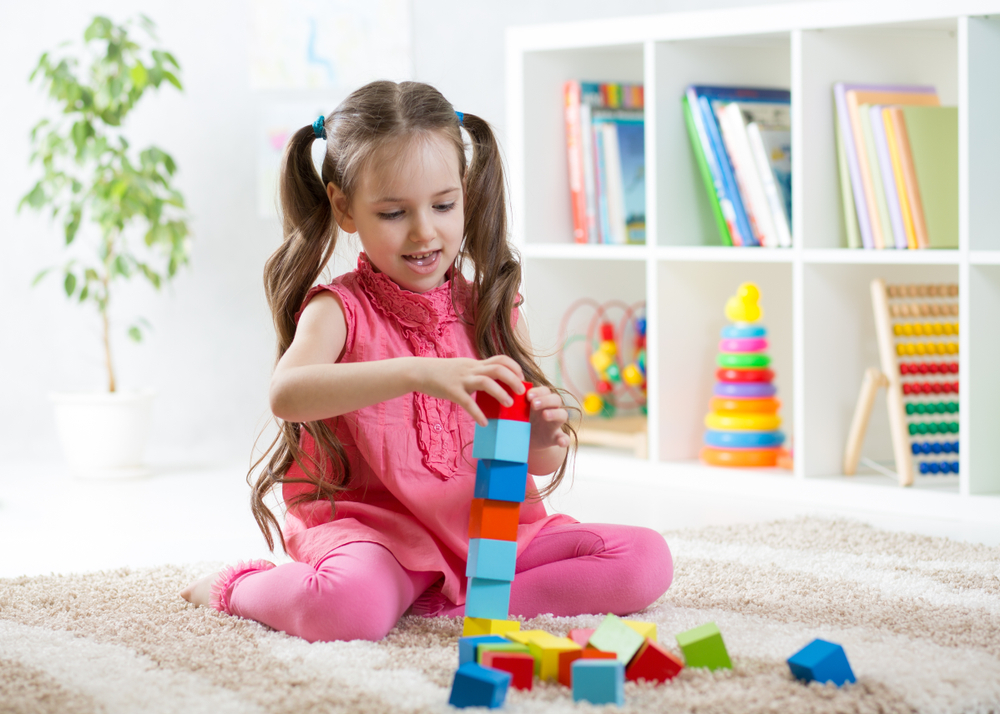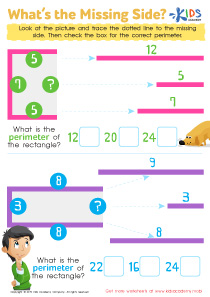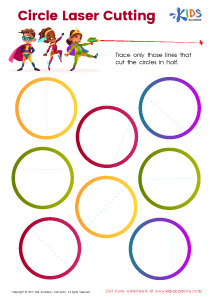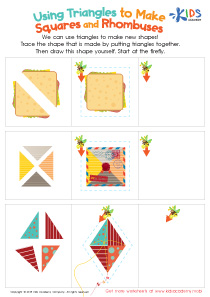Pattern recognition Normal 2D Shapes Worksheets for Ages 3-9
3 filtered results
-
From - To
Discover our engaging "Pattern Recognition Normal 2D Shapes Worksheets" designed for children ages 3 to 9. These worksheets aim to enhance essential cognitive skills while making learning both fun and interactive. Kids will explore various 2D shapes, helping them identify, classify, and understand patterns effectively. With a variety of colorful and stimulating activities, children will boost their observation skills and reinforce their foundational math abilities. Perfect for home or classroom use, these worksheets provide a supportive learning environment while keeping kids excited about geometry. Download now to spark your child's interest in shapes and pattern recognition through playful learning!
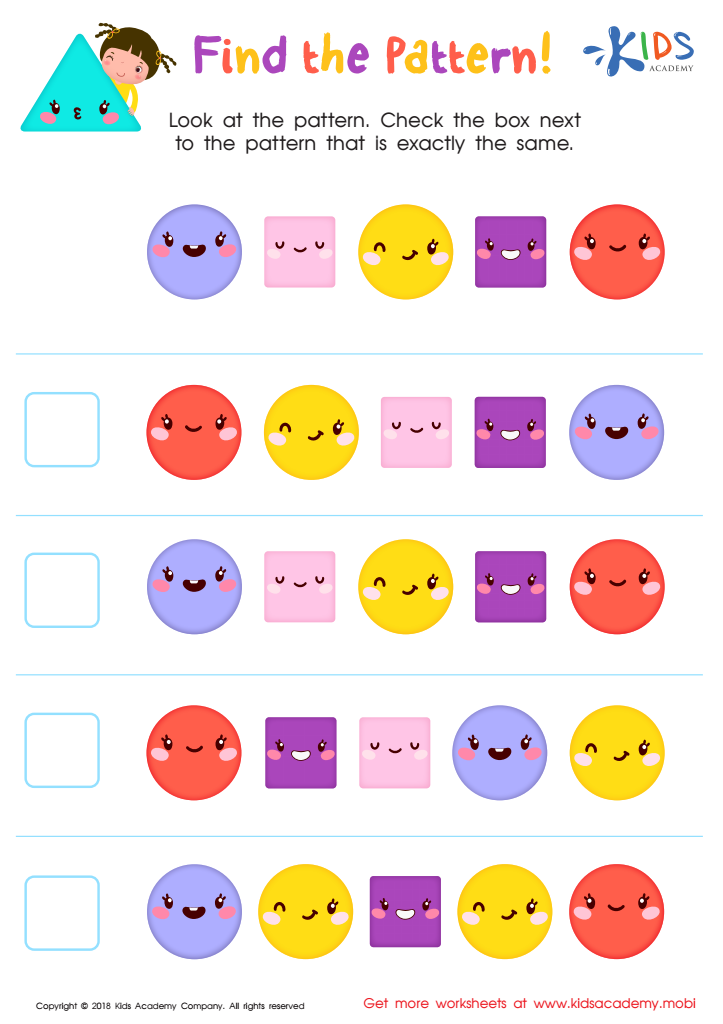

Find the Pattern Worksheet


Make the Same Pattern Worksheet
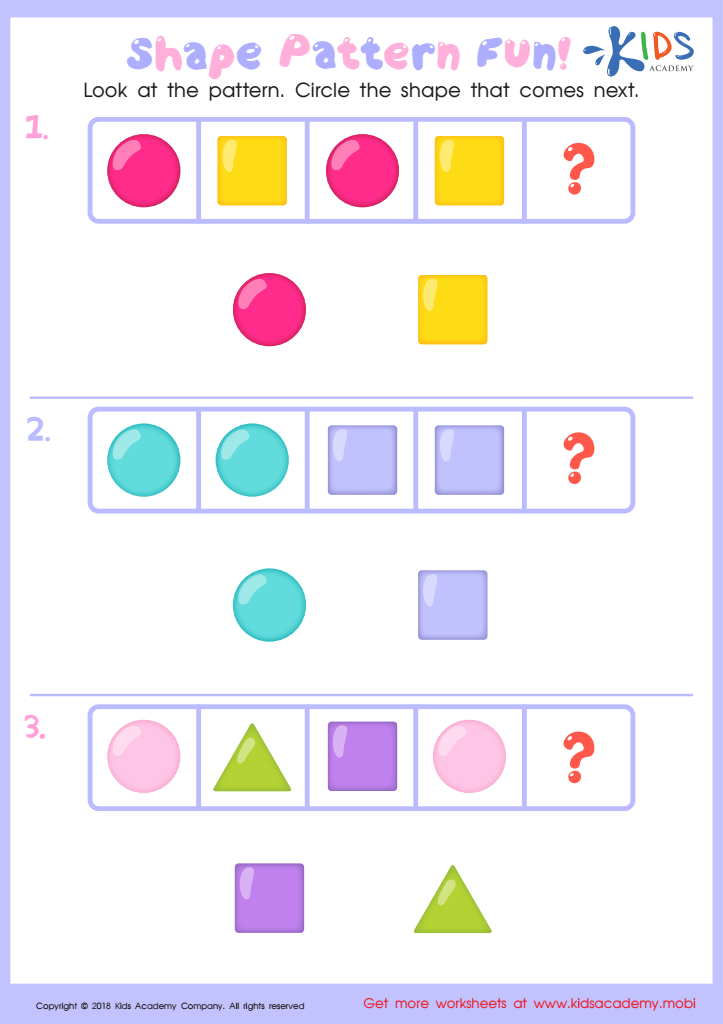

Shape Pattern Fun Worksheet
Pattern recognition and understanding normal 2D shapes are crucial developmental skills for children aged 3-9, making it essential for parents and teachers to emphasize these concepts. Firstly, recognizing patterns helps children develop critical thinking and problem-solving abilities. It encourages them to identify relationships and make connections between concepts, which are foundational skills for higher mathematical reasoning.
Secondly, 2D shapes form the basis of geometry, which is integral to developing spatial awareness. This knowledge not only aids in understanding more complex mathematical concepts later on but also enhances daily activities, such as reading maps, understanding dimensions, and even participating in art activities. Learning about shapes fosters creativity and encourages children to explore their environment, stimulating curiosity.
Additionally, engaging with patterns and shapes supports language development. Children learn to describe, categorize, and communicate, refining their vocabulary and increasing their ability to express ideas. Finally, mastering these skills helps build confidence as they encounter new challenges. When children feel competent in recognizing patterns and shapes, it positively reinforces their willingness to take risks in learning and exploration, setting a solid foundation for lifelong learning. Therefore, fostering these earlier skills is essential for holistic child development.
 Assign to My Students
Assign to My Students
